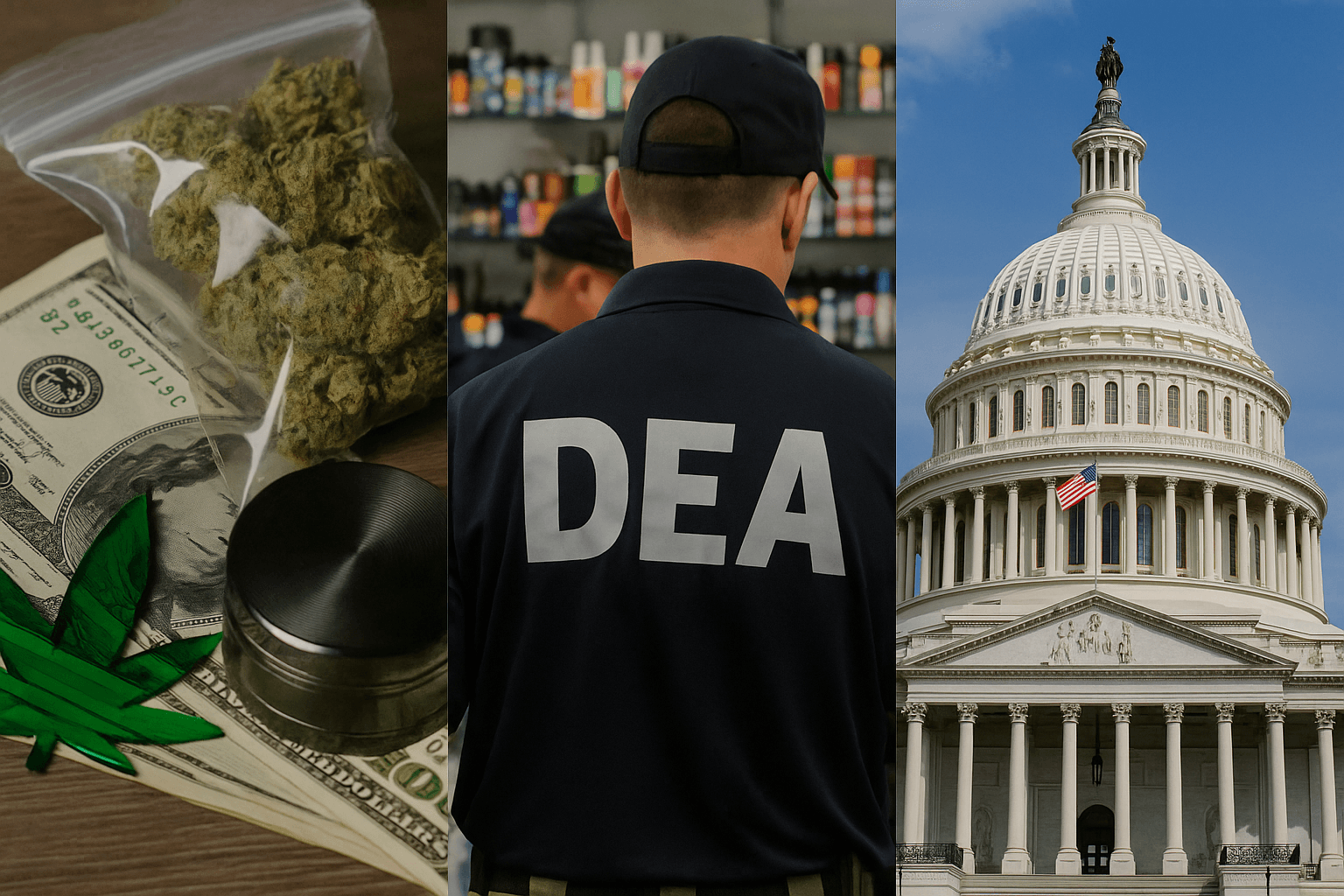Tag: legalization efforts
Trump Signs Order to Reclassify Cannabis to Schedule III
WASHINGTON — President Donald Trump announced Thursday that his administration will officially move cannabis from Schedule I to Schedule III under the Controlled Substances Act, a decision that marks the most significant change to U.S. drug policy since the early 1970s....
18 Dec, 2025
-
2 min read
Trump Could Reschedule Cannabis Tomorrow — Here’s What That Would Change Overnight
If reports prove accurate, tomorrow may mark the most significant shift in federal drug policy in 55 years. Multiple administration sources are signaling that President Trump is poised to follow through on what has long been teased: rescheduling cannabis from Schedule I to Schedule III under the Con...
17 Dec, 2025
-
2 min read
Trump, Cannabis & the Progressive Left’s Freakout Over the Marijuana Issue
Independent Voter Podcast host Chad Peace and co-host Cara McCormick dive into the left’s political freak-out over Trump potentially rescheduling cannabis — and what it exposes about a system that weaponizes even 80/20 issues....
11 Dec, 2025
-
1 min read
Is Trump About to Outflank Democrats on Cannabis? Progressives Sound the Alarm
As President Donald Trump signals renewed interest in reclassifying cannabis from a Schedule I drug to Schedule III, a policy goal long championed by liberals and libertarians, the reaction among some partisan progressive advocates is not celebration, but concern....
08 Dec, 2025
-
5 min read
Hemp-Derived THC Ban Passes US Senate
Nearly all hemp-derived THC products in the United States are set to become illegal in late 2026 under new legislation passed by the U.S. Senate. The measure, included within a series of government funding bills, changes the federal definition of hemp and effectively outlaws the wide range of intoxi...
11 Nov, 2025
-
3 min read
Missouri Voted for Legal Cannabis; Now Gas Station Weed Is Undermining the Whole System
When Missouri voters legalized cannabis, it became one of the fastest-growing regulated industries in the country. But in just a few short years, that success is being threatened by a shadow market — products made from “intoxicating hemp” and sold at gas stations and smoke shops without testing, regulation, or taxes.
Dave Craig, vice president of marketing for From the Earth, explains how the 2018 Farm Bill unintentionally opened a loophole that allows the sale of synthetic THC and hemp-derived...
23 Oct, 2025
-
1 min read
Fox News And Its Very Dishonest Cannabis DUI Story
A recent Fox News segment about 106 drivers with THC in their systems who died in car crashes shows how media networks package limited research findings into sensationalized news that seeks to influence political debate. At a key moment when President Donald J. Trump is weighing a decision to use hi...
10 Oct, 2025
-
8 min read
Trump Shares Pro-Cannabis Video From Longtime Friend, Heightening Suspense Over Cannabis Rescheduling
On September 28, President Donald Trump posted a Truth Social video praising CBD as a “game-changer” for seniors.
...
30 Sep, 2025
-
4 min read
California Cuts Cannabis Taxes as DEA Targets Vapes and Congress Tries to Block Rescheduling
The landscape for cannabis in the United States continues to shift on multiple fronts, with recent developments spanning state tax relief, federal enforcement, and congressional roadblocks to reform.
...
26 Sep, 2025
-
5 min read
Who Will Move First on Cannabis Tax Relief — Newsom or Trump?
The political rivalry between President Donald Trump and California Governor Gavin Newsom has dominated headlines this year, most recently over the issue of congressional redistricting, also known as gerrymandering. ...
08 Sep, 2025
-
3 min read
Will Trump Reclassify Cannabis This Week?
A massive fistfight broke out on the floor of the Mexican Senate on August 27 as lawmakers clashed over whether the United States should step in to confront Mexico’s drug cartels. The chaos in Mexico comes just as President Donald Trump is preparing to make news of his own. With a single announcemen...
29 Aug, 2025
-
4 min read
Schedule 1 v. Schedule 3 : Does Trump Know Why the Illicit Market Doesn’t Want Cannabis Legalization?
The Wall Street Journal and CNN reported August 8 that President Donald Trump said privately at a fundraiser that he was open to reclassifying cannabis under federal law, a move that could have far-reaching implications for the legal industry, the illicit market, national drug policy, and electoral ...
12 Aug, 2025
-
6 min read











